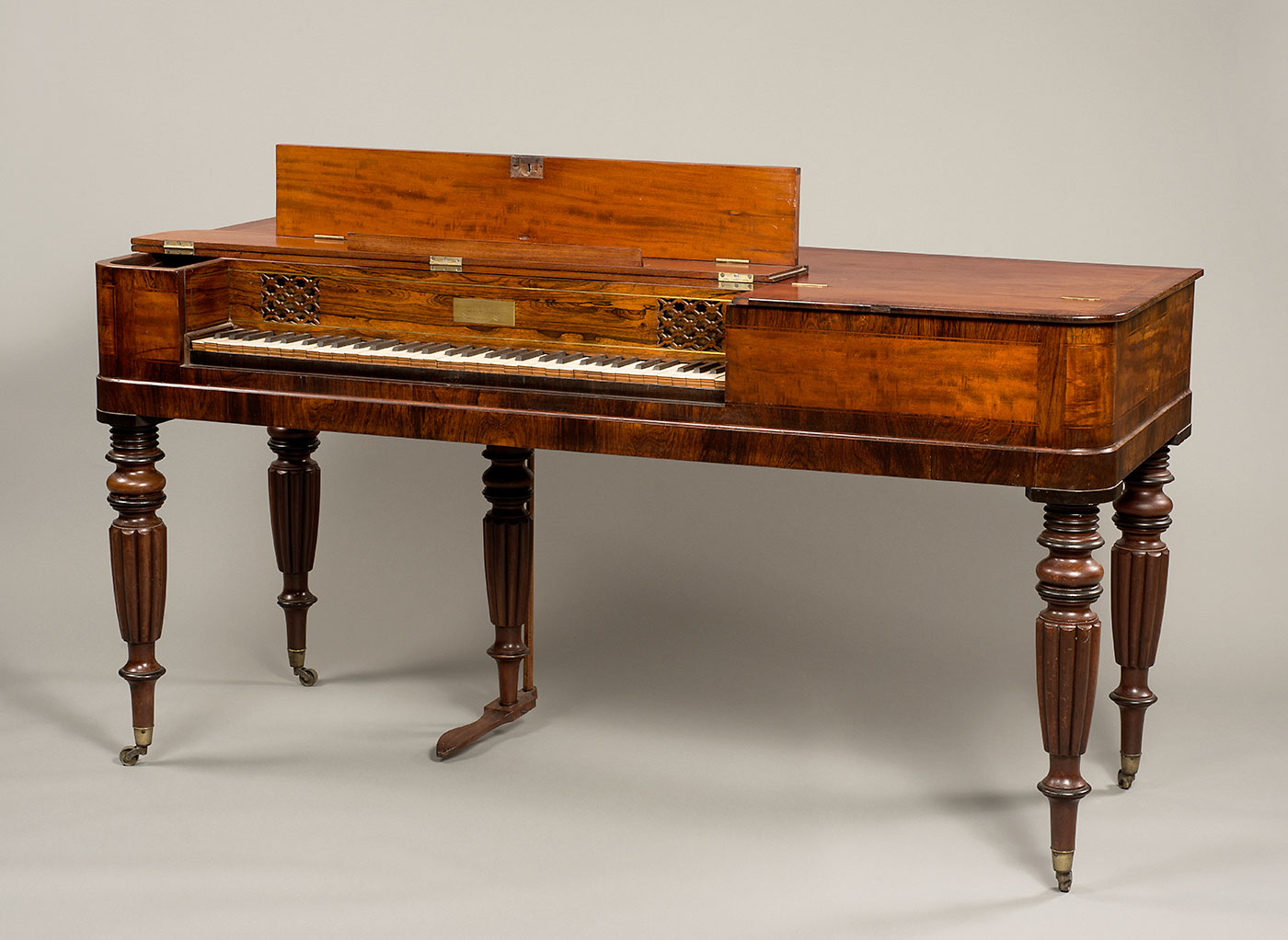 MENU
MENU
 MENU
MENU

The piano that graced the parlor of the Hitchcocks' home in Amherst. Their daughter Emily sometimes played for their guests. Bought second-hand, it was only the second piano in all of Amherst. Image courtesy of Pocumtuck Valley Memorial Association/Memorial Hall Museum.
The simple but comfortable parlor in the Hitchcock home was a lively stage for entertainment and conversation among college professors, visiting scientists and ministers, artists, social reformers, and friends. The Hitchcocks' experiences in the literary and debating societies of their youth served them well, giving them skill and ease in the art of parlor exchange. In the 1840s, they bought a "pianoforte" (the first name for a piano), only the second to find its way to Amherst. The Hitchcocks did not buy fancy clothes or furniture or other items they considered frivolous, but were glad to spend their money on fine art, music, scientific instruments, books—anything they believed would elevate mind and soul and contribute to the advancement of knowledge.
They and other refined people entertained their social circles and held special occasions for traveling dignitaries in soirees and dinner parties at their homes. Ideas spread rapidly among members of an increasingly mobile public. Better systems of roads, followed by canals and then trains, made travel less difficult. Visitors to the Hitchcocks could go by train to Northampton and take a stagecoach right to their doorstep in Amherst.
Among their important visitors were the famous British geologist Sir Charles Lyell and his wife, Mary. They came twice, once in 1842, when Edward escorted them to see a fossil footprint site, and again in 1852. Lady Mary Lyell was an expert in conchology (shells), knowledgeable about geology, and traveled widely with her husband on geological excursions. Like Orra, she illustrated her husband's geological work. Mary and Orra fulfilled traditional wifely roles, but neither one had a problem keeping up her end of a technically sophisticated scientific conversation.
The leading social lights of Amherst could appear a little provincial. Strong believers in temperance, the Hitchcocks served their guests "Adam's ale" (water) rather than wine, and the food was simple to the point of blandness. In a letter to her father, the cosmopolitan Lady Lyell expressed amusement at the quaint arrangements for dinner at the Hitchcocks', where men sat on one side of the table and women on the other. Years later, after their own trip to Britain and Europe, where the Hitchcocks experienced the hospitality of the Lyells and other members of the English upper classes, Orra drily commented that "perhaps our parties could be improved."